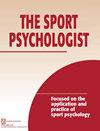英国男子足球院校的心理学家如何评估他们的工作环境并采用合适的专业实践框架
IF 1.2
4区 心理学
Q3 HOSPITALITY, LEISURE, SPORT & TOURISM
引用次数: 0
摘要
本研究考察了在英国男子足球学院工作的心理学家在选择指导应用心理学规定的专业实践框架时如何评估他们的工作环境。16名心理学家——6名女性和10名男性——参加了两次半结构化的访谈。在分析中采用了逐步归纳演绎的方法。作者发现13位心理学家将人本主义心理学作为他们的指导框架。在探索推理过程中,开发了三类:(a)选择人文主义方法的动机,(b)应用人文主义方法时的挑战,以及(c)关于运动心理学的长期耻辱和限制性假设。研究表明,人本主义心理学可能是一种有效的方法来对抗当前英语学术环境中的一些非人性化特征(例如,过度依赖度量标准)。然而,英超联赛、英足总和其他管理足球组织应该注意到心理学家有时必须与现行制度串通一气,在随后扩大规定之前在学院建立心理学的弊端。本文章由计算机程序翻译,如有差异,请以英文原文为准。
How Psychologists in Men’s English Football Academies Evaluate Their Working Context and Adopt an Appropriate Professional Practice Framework
This study examined how psychologists working in men’s English football academies evaluate their working context when choosing a professional practice framework for guiding applied psychology provisions. Sixteen psychologists—six women and 10 men—participated in two semistructured interviews. A stepwise inductive–deductive approach in the analysis was used. The authors found that 13 of the psychologists adopted humanistic psychology as their guiding framework. In exploring the reasoning, three categories were developed: (a) motives for choosing a humanistic approach, (b) challenges when applying a humanistic approach, and (c) perpetuating stigma and restrictive assumptions regarding sport psychology. The study shows that humanistic psychology might be an effective approach to countering some dehumanizing features in the current English academy context (e.g., an overreliance on metrics). However, the Premier League, the Football Association, and other governing football organizations should notice the drawbacks of how psychologists sometimes must collude with the current system to establish psychology in the academy before later expanding provisions.
求助全文
通过发布文献求助,成功后即可免费获取论文全文。
去求助
来源期刊

Sport Psychologist
医学-心理学
CiteScore
2.80
自引率
6.20%
发文量
18
审稿时长
>12 weeks
期刊介绍:
TSP is a scholarly refereed journal designed as a forum to stimulate thought and disseminate knowledge that focuses on the application and practice of sport psychology. A special emphasis of the journal is on the delivery of psychological services to practitioners such as athletes and coaches. TSP is international in scope and is receptive to diverse methodologies. TSP is published for sport psychology specialists who engage in research, teaching, and/or intervention in a variety of contexts including academic, public, and private settings. The journal is also intended for practitioners such as coaches who have training and interest in sport psychology.
 求助内容:
求助内容: 应助结果提醒方式:
应助结果提醒方式:


